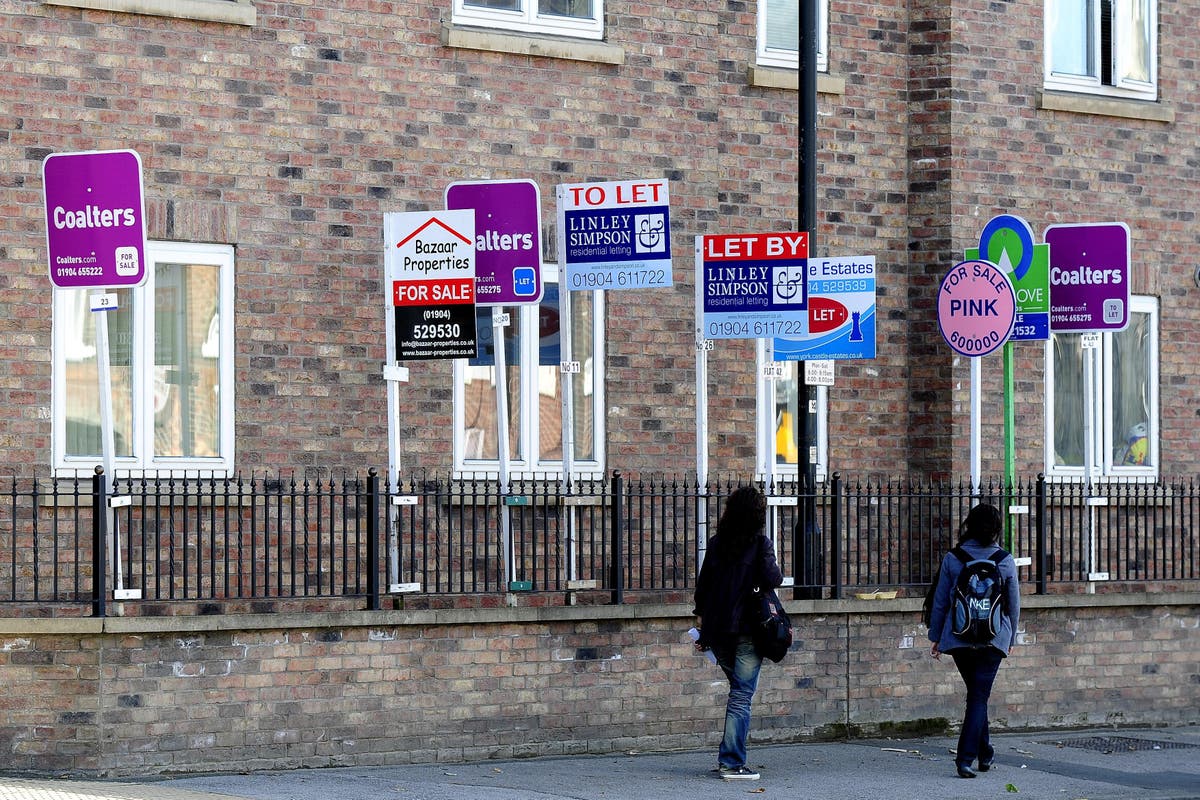Lower borrowing costs have led to a surge in mortgage approvals, as home buyers aim to lock in better rates following the interest rate cut in the summer.
The number of approvals for homebuyers rose to a fresh two-year high in September, with 65,600 loans being approved – 700 more than in August, according to the Bank of England.
Alice Haine, personal finance analyst for pension firm Bestinvest, said: “Lower inflation, improving borrowing conditions and robust income growth have eased the affordability challenge for many buyers in recent weeks following the Bank of England’s decision to make its first interest rate cut since the start of the pandemic.”
She said buyers, sellers, homeowners and landlords are “now on tenterhooks” ahead of the Budget, although the prospect of another interest rate cut this year is “likely to catalyse the property sector even more”.
What have mortgage rates done recently?
The general recent trend for mortgage rates has been downward following the highs experienced two years ago in the wake of former prime minister Liz Truss’s disastrous mini-Budget.
But a number of cheap products were pulled from markets in recent weeks. Santander withdrew a 3.68 per cent five-year fixed-rate product for borrowers with a 40 per cent deposit in their homes. The cheapest deal for the same duration and deposit is now 3.84 per cent, with NatWest.
The moves all happened before Budget speculation began in earnest and were put down to a small spike in broader borrowing costs because of global tensions, particularly as war rages in the Middle East.
They also came amongst mixed messages from the Bank of England over where rates should go.
Governor Andrew Bailey said earlier this month that the Bank could be a “bit more aggressive” at cutting borrowing costs, in an interview with the Guardian. But on the same day, the central bank’s chief economist Huw Pill warned that cutting interest rates “too far or too fast” would be a mistake.
The base rate was cut in August from 5.25 per cent to 5 per cent. More small cuts are expected.
What could the Budget do to rates?
Much depends on how financial markets react to Rachel Reeves’ Budget. Traders will be looking closely at any extra borrowing. If more spending is on the cards, economists will want to know if this spending is likely to push up inflation.
More spending and thus more money sloshing around the financial system could mean the value of money slipping. And higher inflation means the Bank of England is less likely to cut rates further.
There are reasons to be optimistic about inflation, however.
Steve Clayton, head of equity funds at stock broker Hargreaves Lansdown, said: “Shop prices are still falling. The British Retail Consortium/Nielsen IQ’s latest monthly survey suggests that prices fell by 0.8 per cent in October, even after September’s 0.6 per cent contraction.”
If official data supports this industry view, “that would give a green light to the Bank of England to make further cuts to the UK’s still high interest rates, raising the prospect of relief for mortgage holders as we head into 2025.”
What else could happen?
Ms Reeves is rumoured to be considering a rise in capital gains tax which has anecdotally seen buy-to-let landlords try to sell up.
Bestinvest’s Alice Haine added: “Another fear among homebuyers is that there will be no extension to stamp duty cuts first introduced in 2022 under the Conservative government. This is likely to be a worry for buyers though it may encourage those waiting for mortgage rates to fall further to bring forward a purchase to avoid a heavy tax bill.”
For first time buyers, the duty for properties worth no more than £625,000 was slashed to zero for the first £425,000 and 5 per cent for the rest.
For regular buyers, the rate is zero on the first £250,000 and 5 per cent for the remainder up to £925,000. For the next slice up to £1.5m, it is 10 per cent, and 12 per cent above that.

